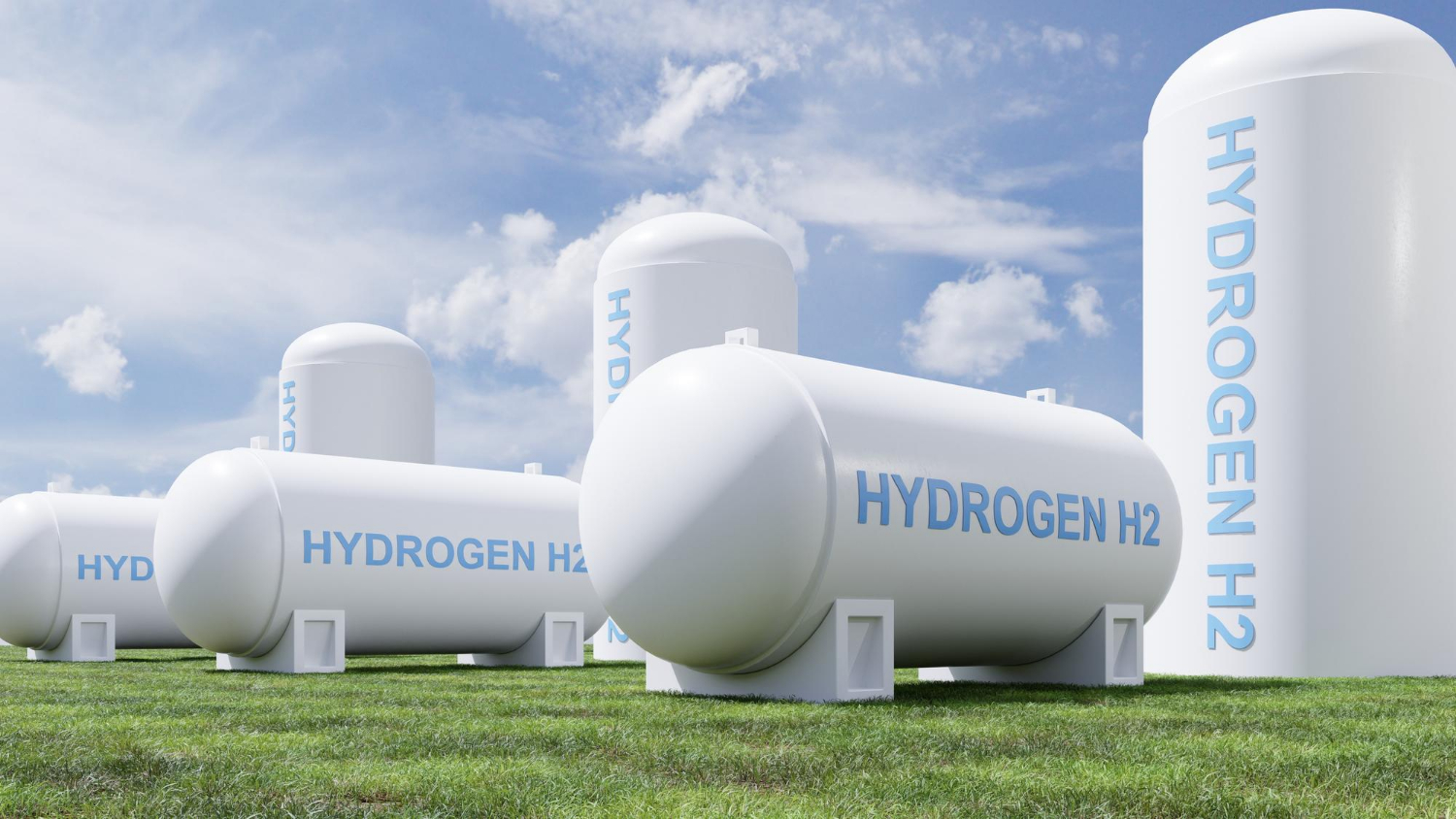According to “The Insight Partners” latest market study on The global Hydrogen Storage Alloys Market Forecast to 2028 – COVID-19 Impact and Global Analysis – by Type (AB5 and AB2) and Application (Rechargeable Batteries, Cooling Devices, Fuel Cells and Others),” the market was valued at US$ 2,406.88 million in 2019 and is projected to reach US$ 4,535.53 million by 2028; it is expected to grow at a CAGR of 7.3% from 2020 to 2028. The report highlights key factors driving the market growth and prominent players along with their developments in the market.
Hydrogen storage alloys are classified into intermetallic compounds of several types such as AB5, AB2, AB, and A2B. Where group A elements basically consist of La, Ti, Zr, Mg, etc. and B consist of Ni, Co, Fe, Mn, etc. whose hydrides are thermodynamically stable and unstable, respectively. Among these AB5 and AB2 are the most promising and widely used hydrogen storage alloys. These alloys are metallic materials that have a unique ability to reversibly absorb and release significant amounts of hydrogen from the gas phase or electrochemically.
Based on type, the hydrogen storage alloys market is segmented into AB5 and AB2. The AB5 segment led the hydrogen storage alloys market with the highest market share in 2019. The AB5-type hydrogen storage alloy Mm (Ni, Mn, Co, Al)5 is one of an alloy series which are being extensively used now. The alloy of composition MmNi3.55Mn0.4Al0.3Co0.75 was shown to meet the minimum requirements for a practical battery with respect to cost, cycle life and storage capacity. AB5 alloys combine a hydride forming metal A, usually a rare earth metal (La, Ce, Nd, Pr, Y or their mixture known as Mischmetal), with a non-hydride forming element that is nickel. The latter can be doped with other metals, such as Co, Sn or Al, to improve materials stability or to adjust equilibrium hydrogen pressure and temperature required for its charging discharging with hydrogen. This, in turn, is anticipated to drive the growth of the market during the forecast period.
Based on application, the hydrogen storage alloys market is segmented into rechargeable batteries, cooling devices, fuel cells, and others. Rechargeable batteries are one of the most important technologies for the new-energy vehicles. Among them, nickel metal hydride (Ni-MH) batteries have been early and widely used in the HEV owing to their high-power capability, tolerance to overcharge or discharge, environment compatibility and safety. The main advantage of the battery is that, it keeps both the alkaline electrolyte and the positive nickel hydroxide cathode developed for NiCad batteries, one produces a striking gain in volume energy (from 120 Wh.L-1 for Ni-Cad to 240 Wh.L-1 for Ni-MH). Moreover, the alternative to cadmium, toxic to the environment, was also a significant benefit. Finally, the charge-discharge electrochemical reactions of the Ni-MH battery do not involve water so that the water content remains constant in the cell over the whole cycle, unlike those 12 involved in Ni-Cad batteries. Moreover, the binary compound is not suitable as an anode in open batteries since its hydride (LaNi5H6) will decompose spontaneously under normal conditions of pressure and temperature.
Japan Metals & Chemicals Co., Ltd, Merck KGaA, Ajax Tocco Magnethermic Corporation, Baotou Santoku Battery Materials Co., Ltd., Santoku Corporation, American Elements, AMG Titanium Alloys & Coatings LLC, Jiangmen Kanhoo Industry Co., Ltd and Xiamen Tungsten Co., Ltd are among the well-established players operating in the global Hydrogen Storage Alloys market.
Get a Sample Copy of the Report@ https://www.theinsightpartners.com/sample/TIPRE00020902/
Impact of COVID-19 Pandemic on Hydrogen Storage Alloys Market
The COVID-19 pandemic is adversely affecting economies and industries in various countries due to government-imposed lockdowns, and travel bans, and business shutdowns. The chemical & materials is one of the major industries suffering serious disruptions such as supply chain breaks, technology events cancellations, and office shutdowns. The shutdown of various plants and factories in North America, Europe, Asia Pacific, South America, and the Middle East and Africa has restricted the global supply chain and negatively impacted the manufacturing activities, delivery schedules, and product sales. Furthermore, various companies have already predicted possible delays in product deliveries and slump in future sales of their products. The travel bans imposed by countries in Europe, Asia, and North America are hindering the business collaborations and partnerships opportunities. All these factors are hampering the activities in the chemical & materials industry, which are restraining the growth of various markets related to this industry.
Hydrogen is considered as one of the significant elements and is abundantly available in gaseous state. The potential use of hydrogen as vital source of energy has drawn significant attention in recent years in various application According to Fuel Cell & Hydrogen Energy Association, the rising focus towards substituting renewables with different dispatchable energy sources has substantially driven the demand for hydrogen generation and storage. As per the association, hydrogen energy storage is technique of storing surplus energy, generated by renewables, so that it can be used for various purposes such as fuel for piston engines or gas turbines and others. As per International Energy Agency, hydrogen generated with the help of electrolysis mechanism holds great futuristic opportunities great promise as an economic fuel choice and predicts that such hydrogen created from wind sources would be comparatively be cost-efficient and cheaper than natural gas by 2030. Therefore, the demand for hydrogen generation and storage, potentially in underground caverns for large-scale energy storage or steel containers in smaller scale storage, is expected to rise. The growing focus over hydrogen as potential renewable energy source along with expanding demand for hydrogen energy storage is expected to stimulate the demand for hydrogen storage alloys in global market. Correspondingly, several techniques have been significantly used to store hydrogen, including hydrogen storage alloys, high-pressure hydrogen gas storage, liquid hydrogen storage, and others at hydrogen refueling stations.
About The Insight Partners
The Insight Partners is a one-stop industry research provider of actionable solutions. We help our clients in getting solutions to their research requirements through our syndicated and consulting research services. We are specialist in industries such as Technology, Media, Food & Beverages, Chemical & Materials, and Telecommunication.
Our research model is very simple. We believe in client servicing and delivering the best quality to our customers. Through our research content, we are making sure that our customers get value for their money along with better quality data and analysis.
Our research content is majorly focused toward market trends in terms of market sizing, competitive landscaping, company analysis, regional or country analysis, etc. We provide a detailed break-up of segmentation in terms of geography, technology, products, and services etc., which helps our clients to gain a deeper analytical understanding of various research topics.
Contact Us
If you have any queries about this report or would like further information, please contact us:
Global: +1 646 491 9876
Asia Pacific: +91 20 6727 8686
Email: [email protected]


